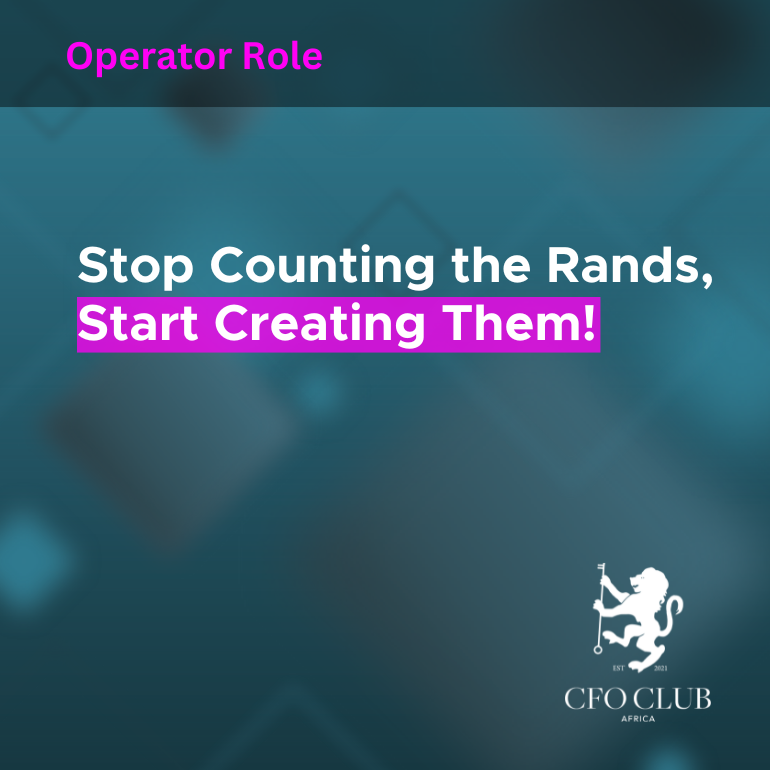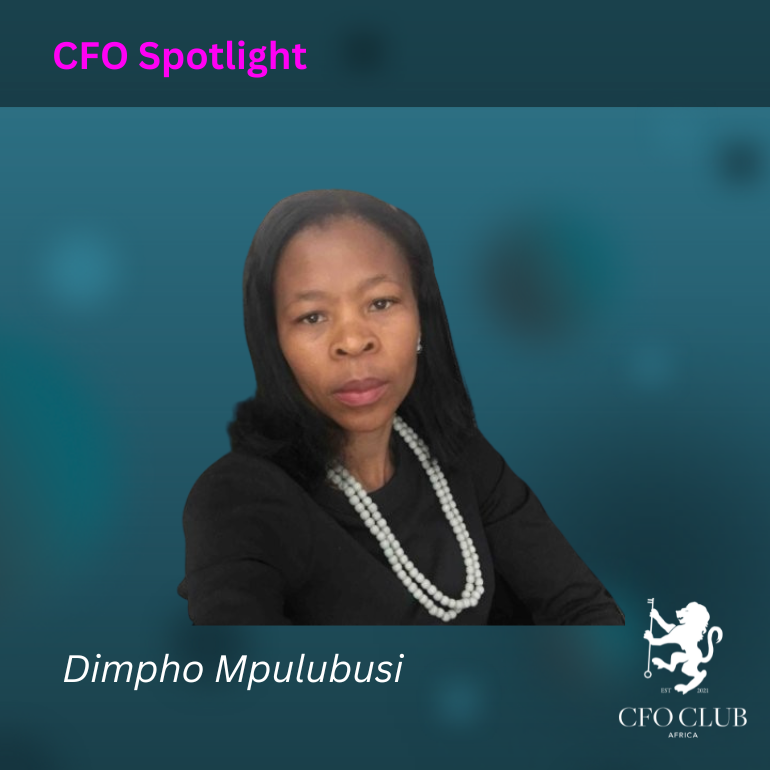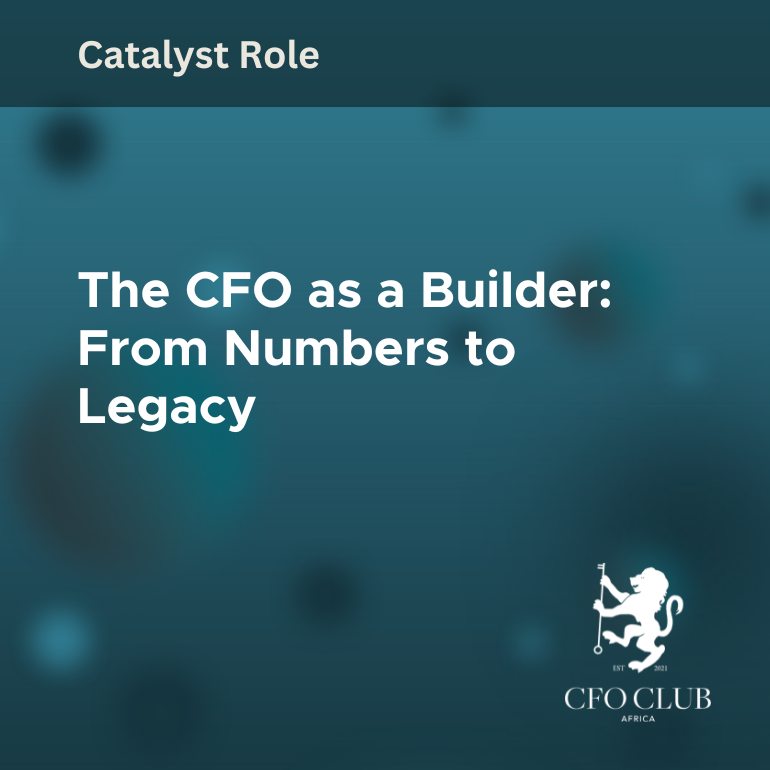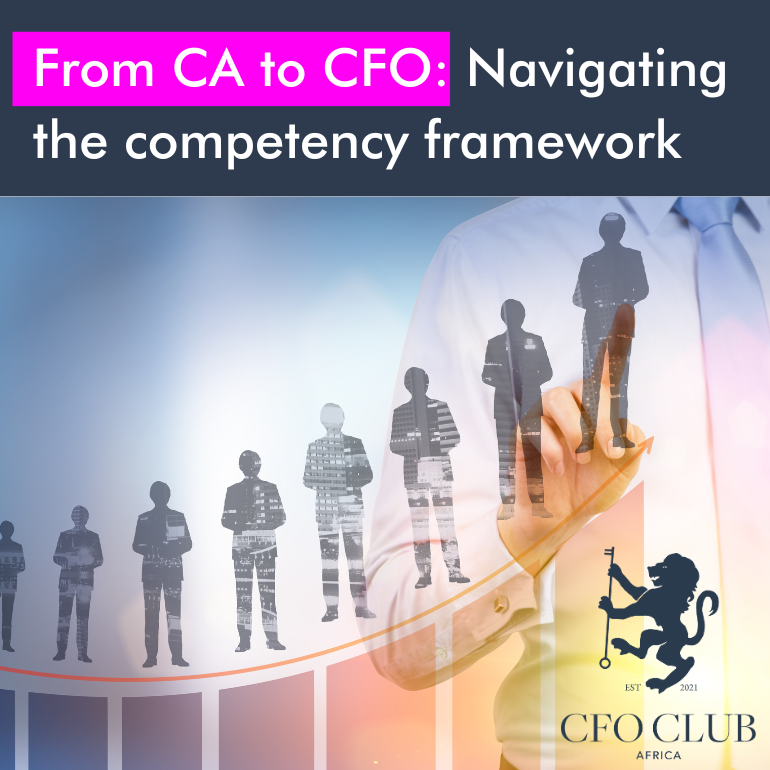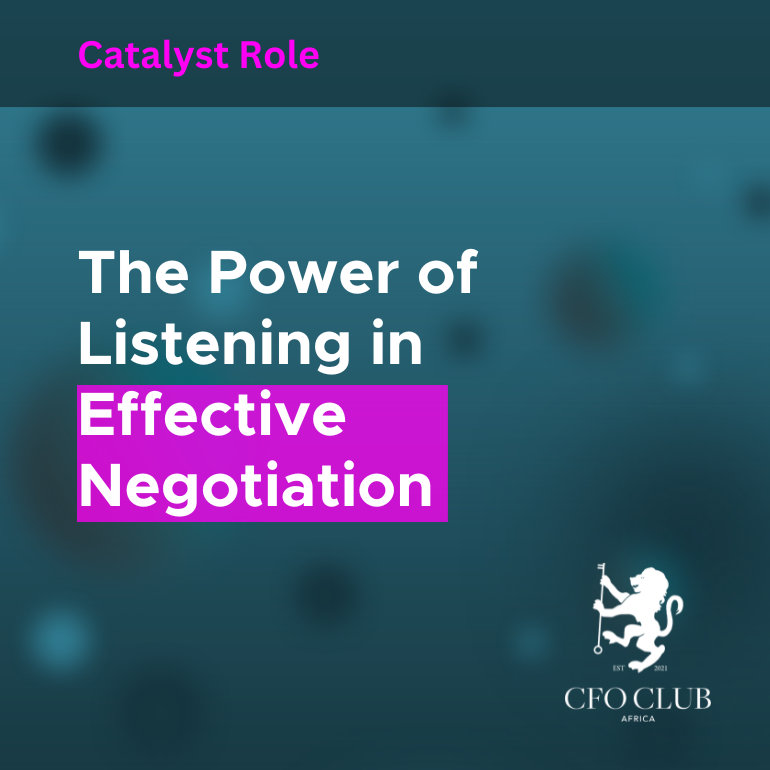Stop Counting the Rands, Start Creating Them!
Stop Counting the Rands, Start Creating Them!
South African CFOs are under no illusion: the job is getting tougher. Costs are rising, talent is tight, and every boardroom conversation ends with the same question – how do we do more with less? But there’s opportunity in that pressure. The right moves now can reposition the finance function from cost centre to strategic growth driver. And it starts by thinking differently about where value really comes from.
This isn’t about slashing budgets or squeezing suppliers. It’s about smarter, sharper leadership. Here’s what forward-thinking CFOs across South Africa are doing to cut waste, unlock capacity, and create real value that shows up on the bottom line.
Automate the Pain. Focus on Value.
Finance teams are burning hours on repetitive tasks, recons, invoicing, payroll runs. The opportunity? Automation. South African firms that automate just 30% of their routine processes are already seeing gains in accuracy, turnaround time, and staff morale. You don’t need a full digital transformation budget either. Start with simple wins: automate recurring journals, sync your bank feeds, and integrate cloud tools into your ERP.
Less admin. More analysis. That’s what makes the difference when the CEO asks, “What’s really driving our costs?”
Zero-Based Thinking for a Broken Cost Structure
Forget last year’s budget. Start fresh. Zero-based budgeting (ZBB) is making a comeback among cost-conscious CFOs, and for good reason. It forces you to challenge every line item, not just tweak percentages. Where are we locked into legacy costs? Where are we paying for services no one uses? Do we need in-house support for everything?
It’s not just about cutting. It’s about clarity. You’ll find overlap, duplication, and entire functions that could be outsourced or consolidated. CFOs at group level are using shared services models to centralise HR, procurement, and compliance, and saving millions while boosting quality.
Strategic Procurement Is a Value Engine
Procurement isn’t just about cheaper inputs. It’s where the smartest CFOs are engineering value into the business model. Work closely with ops to rethink product design, can we reduce complexity without sacrificing quality? Build long-term partnerships with fewer suppliers to negotiate better terms and mitigate risk.
South African CFOs are also shifting from imports to local supply chains to sidestep logistics shocks and currency volatility. This isn’t patriotic, it’s practical. It’s also faster, more resilient, and often cheaper once you dig into total cost.
Know Where the Profit Really Comes From
Your board sees revenue and margin. You need to see profitability by product, customer, and region. Because not all sales are good sales.
Use activity-based costing (ABC) to surface hidden margin leaks, like that high-volume customer who’s always late paying and chews up service hours. CFOs who analyse customer and product profitability don’t just report better, they help reshape strategy.
Cut what drains you. Double down on what works.
Working Capital Is Your Cheapest Funding Source
Cash is expensive. Working capital isn’t. And yet most businesses in South Africa are leaving cash on the table, too much stock, late-paying customers, suppliers not negotiated with properly.
Start by tightening forecasts. Then look at levers: early settlement discounts, lean inventory, and tougher debtor follow-ups. Liquidity risk is rising, and interest rates aren’t your friend. Optimising working capital is a cost-cutting strategy that doesn’t feel like one.
Use the Tax Code to Your Advantage
Tax efficiency is part of cost strategy, especially in South Africa’s tightening compliance environment. A strategic tax review often reveals overlooked savings: R&D deductions, Section 12L energy efficiency allowances, and structuring opportunities for VAT, capital gains, or group transactions.
This isn’t avoidance. It’s good governance. It’s also protection, because if you don’t tighten up, SARS will come knocking.
Build Cost-Conscious Innovation into Your Culture
Some of the best ideas don’t come from the boardroom, they come from your staff. Build a culture where teams are encouraged (and rewarded) to find better ways of doing things.
Hold innovation sprints. Gamify cost-saving ideas. Celebrate teams that increase value without increasing cost. The message is clear: this isn’t about austerity. It’s about agility.
The CFO doesn’t just say “no” anymore. You’re the one helping teams say “yes” to the right things.
Embed ESG Where It Adds Value
Forget box-ticking. ESG is a cost conversation. Install solar, reduce grid reliance and claw back Eskom costs. Shift to sustainable packaging, lower shipping weight and reduce waste. Tap into green finance with better rates linked to sustainability targets.
Boards and investors are asking hard questions about resilience and responsibility. As CFO, you have the numbers and the strategy to turn ESG into a commercial win.
This Is the CFO’s Moment
This is not the time to hide in the numbers. It’s the time to lead.
Cost control isn’t just about being lean. It’s about being smart. And smart CFOs don’t just preserve margins, they build value the business can feel.
You already know where the inefficiencies are. Now’s the time to act. Start small. Move fast. And remind your executive team that the most powerful strategy in tough times isn’t survival. It’s reinvention.

